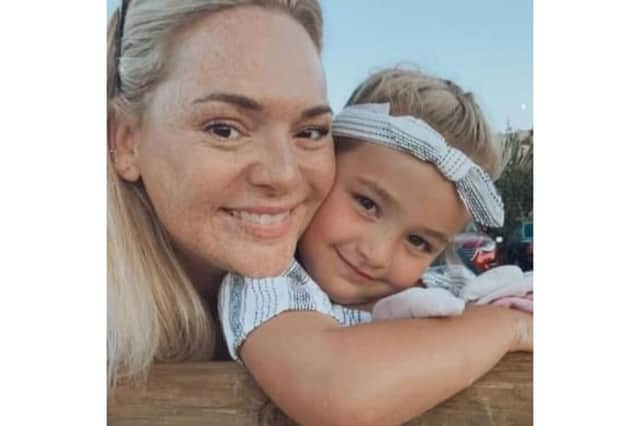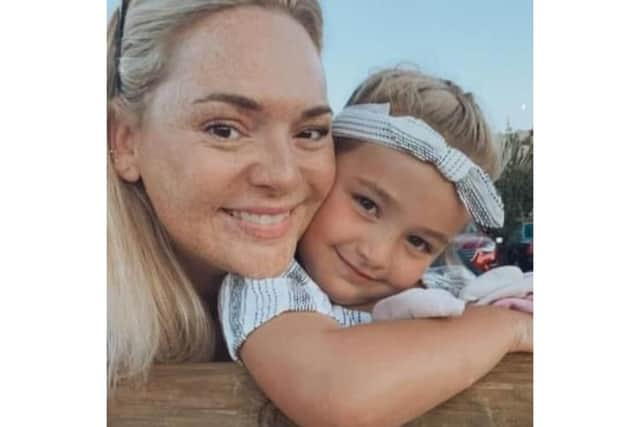Head lice: Bracknell mum spends seven weeks tackling head lice in daughter's scalp


A frustrated mother has spent a staggering seven weeks battling head lice.
For weeks on end, Bracknell mum Cassie Warren and her seven-year-old daughter, Elizabeth, explored as many possible solutions to the youngster's itchy scalp. Continued washing of Elizabeth's hair - and even home remedies like tea tree oil - proved ineffective.
Advertisement
Hide AdAdvertisement
Hide AdIt comes as cases of head lice in the UK spike following the start of the school year, with NHS England data suggesting that case numbers are higher than any point since Covid-19 struck in 2020. In Elizabeth's case, the lice consumed her school holidays, with Cassie doing everything she could to get rid of them.


"I knew there had been an outbreak as the school had been sending out emails towards the end of term," said Cassie.
"I’d been checking my children but didn’t notice anything until the first week of the summer holidays when I spotted little black dots around my daughter’s hairline, and I knew immediately that it was head lice. Having tried various treatments over the years on my older children without much success, I’d read about tea tree oil acting as a repellent for lice, so I used a diluted version of this on my daughter’s hair.
"I spent so much of my summer combing through her hair for nits and picking eggs off individual strands which did turn my stomach a bit."
Advertisement
Hide AdAdvertisement
Hide AdHeadlice get their nourishment from human hair. Despite 50 per cent of parents believing this to be true, head lice are a type of parasite that feed on human blood.
Head lice can jump from head to head. Only 21 per cent of parents correctly identified this to be false. They spread from direct head to head contact and can only live a day or so without contact with a human head.
Regular shampoo use will keep head lice away. More than a third (36 per cent) of respondents thought this was true but the cleanliness of your hair makes no difference to a louse.
Head lice spread disease. Three in ten parents thought this was true (30 per cent) but head lice do not carry diseases, they are just an inconvenience.
Head lice and nits are the same thing. False. Over half of those surveyed thought this was the case when in fact, head lice are the living creatures and nits are the empty egg cases that head lice hatch from.
Louse expert and director of the Medical Entomology Centre, Ian Burgess, added: “There are lots of myths about head lice that circulate among parents when an outbreak occurs. For a head louse to travel between scalps, very close contact would need to be made. This is why cases can be more common between girls who might share hairbrushes and tend to have closer contact than boys when playing.
"Having head lice is just part of childhood and shouldn’t be met with panic. I suggest following a simple three-step process – check, treat, complete. If you make checking for head lice a part of your family’s routine, you’re less likely to feel caught off guard when an outbreak occurs and you can get it treated quickly and easily."
Elizabeth is now head lice free, with Cassie saying that she used Hedrin spray to eventually kill the final lice for good. As families across the UK continue to struggle, experts at Hedrin have been surveying how much parents truly know about head lice and how to treat them. The survey revealed that more than half would panic at the sight of head lice while 65 per cent said they make their skin crawl.
Even once head lice are removed from a person's scalp, the battle isn't necessarily over.
The NHS advises that to get rid of head lice for good, a deep clean of the home is needed - from washing all bedding and clothing to vacuuming the home and even consulting with a GP if needed.
Comment Guidelines
National World encourages reader discussion on our stories. User feedback, insights and back-and-forth exchanges add a rich layer of context to reporting. Please review our Community Guidelines before commenting.
